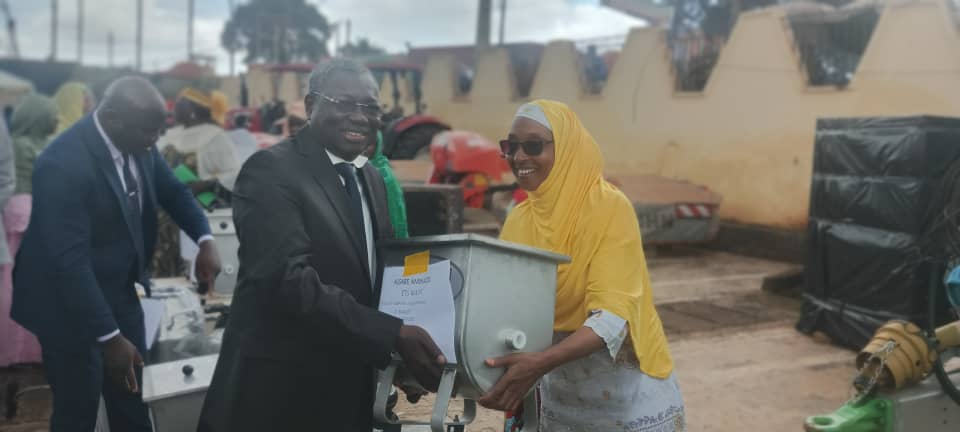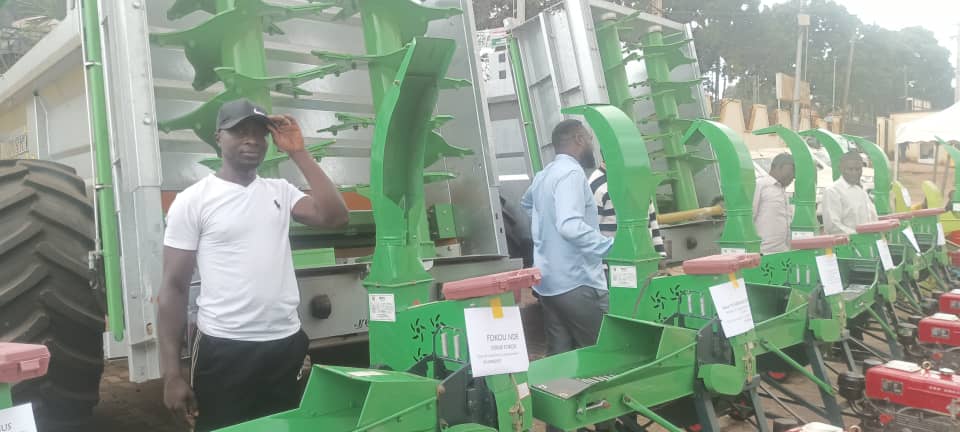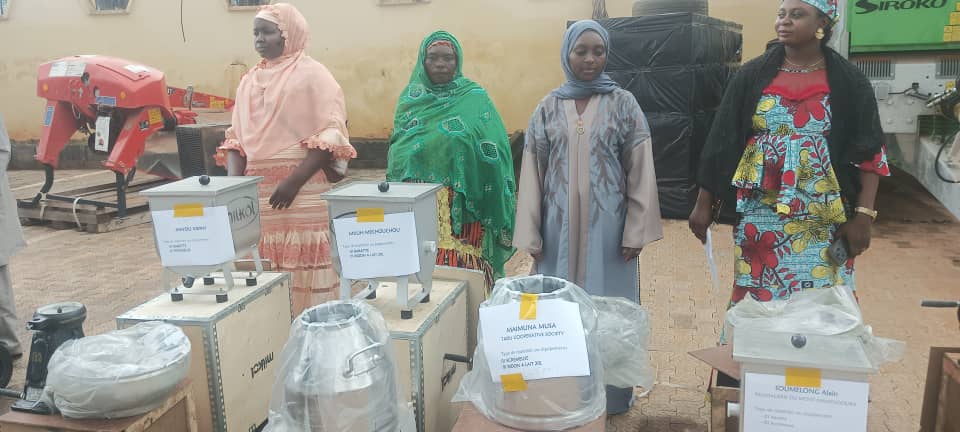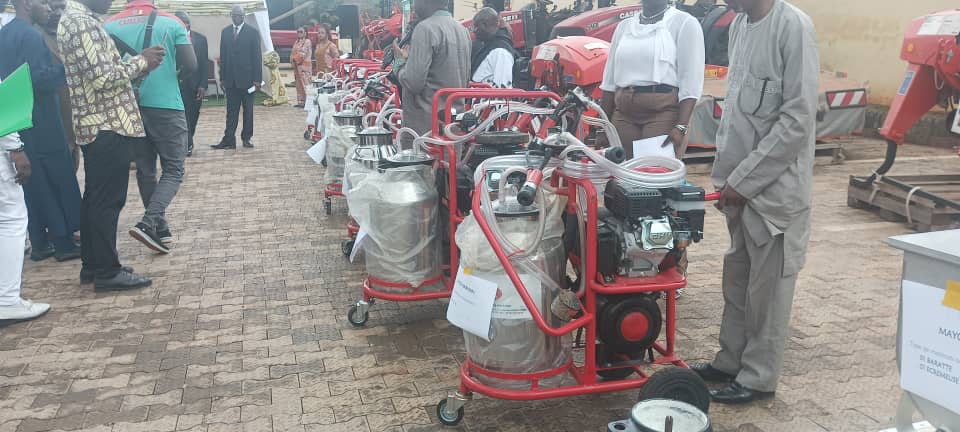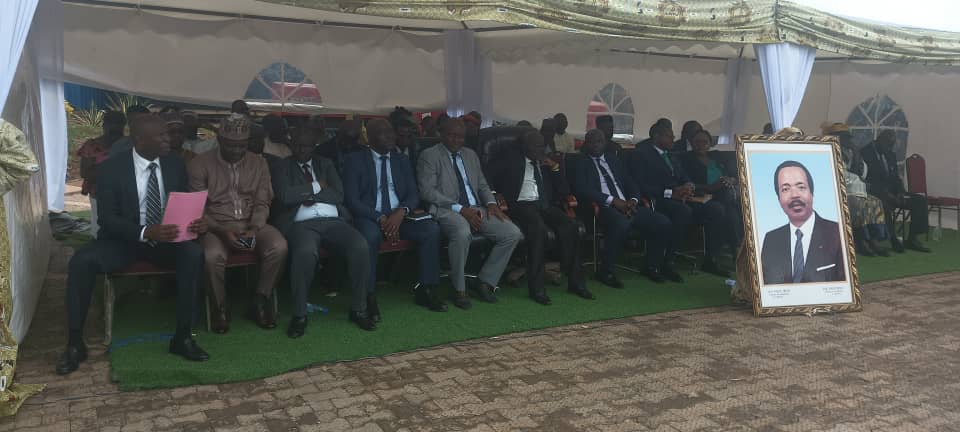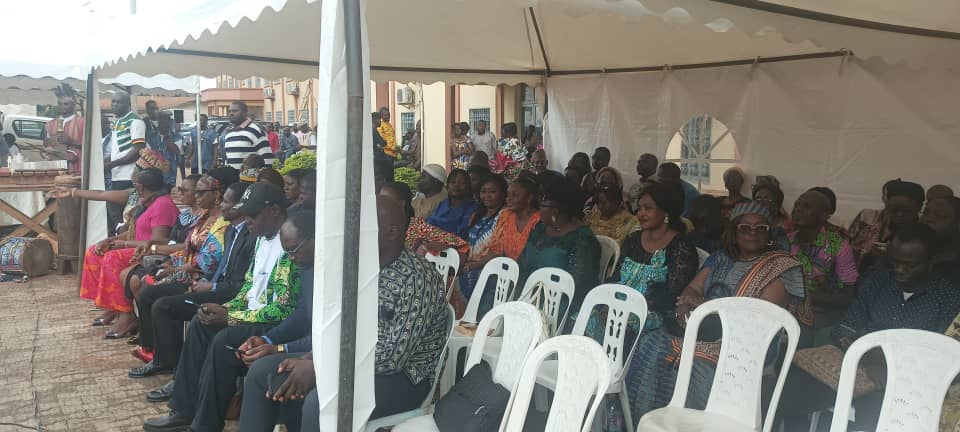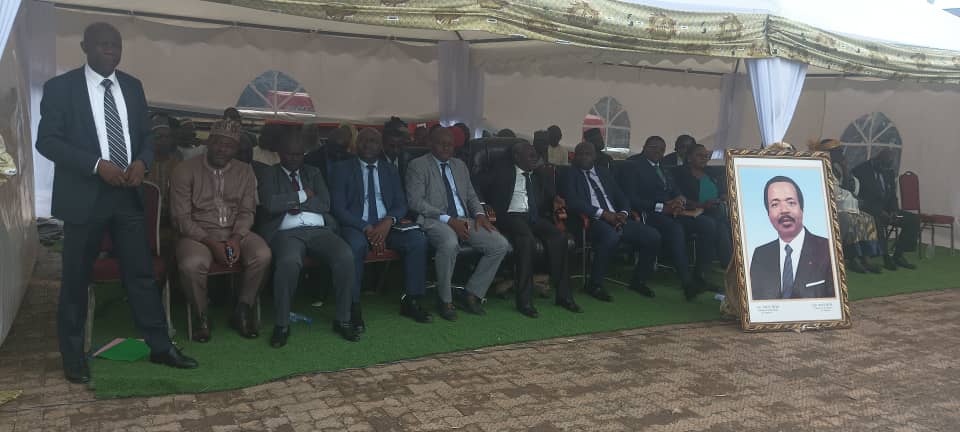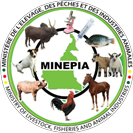DAIRY SECTOR IN THE GREAT SOUTH: THE GOVERNMENT BOOSTS PRODUCTION
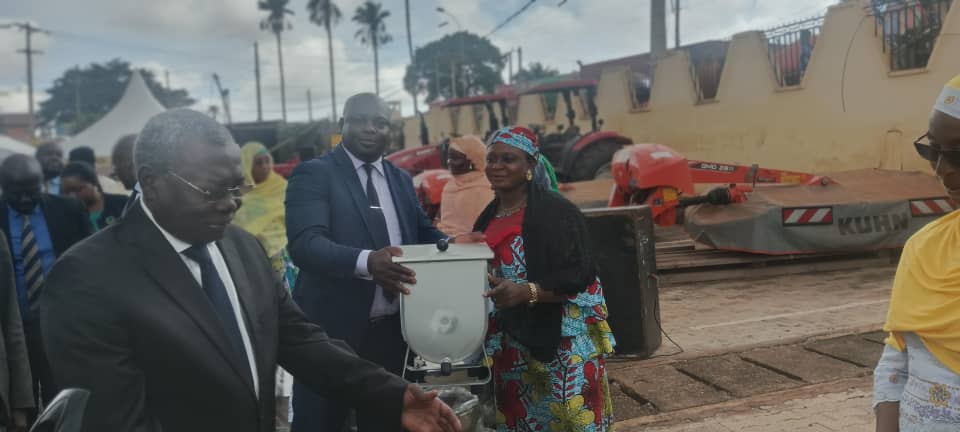
This Tuesday, the Minister of Livestock, Fisheries and Animal Industries handed over support to producers in Yaoundé.
The MINEPIA annex located in the Mvog Betsi district hosted the ceremony to hand over support to milk producers in the southern regions of Cameroon on September 23, 2025. This ceremony comes two weeks after a similar meeting in the northern regions. Milking machines, stalk grinders, milk tanks and many other equipment have been handed over and will help boost milk production in this part of Cameroon.
In his speech, the representative of the president of the milk interprofession listed the activities in which producers have been engaged since the establishment of this interprofession shortly. Celebration of World Milk Day, capacity building of members and consolidation of the founding texts of this group are all projects that keep producers busy. Willy SANDJO did not fail to thank the government for the constant support shown by MINEPIA to this sector. “We are committed to working to achieve the results of the import-substitution policy as long as the government is behind us,” said Mr. SANDJO in front of the member of the government and representatives of the invited administrations.
Just after the signing of an agreement between MINEPIA and the representative of Bange Bank, Dr. TAIGA told the producers that this partnership aims to finance the sector throughout its value chain. Moreover, MINEPIA reminded the audience of the government’s strategy aimed at developing the dairy sector and ultimately increasing milk production in Cameroon. The idea was to tell producers that the option of providing support or capacity building is not new in the world. “Several countries are adopting this attitude to develop their sectors. If you go to Israel, you will see Holsteins, but they are of Dutch origin. If you go to Senegal, you have Montbéliardes. We have imported 495 Montbéliard cows and we are opting for this method to achieve the objectives of the import-substitution policy advocated by the Head of State, H.E. Paul Biya,” explained Dr. TAIGA. “If we proceed by cross-breeding, it takes us an average of 10 years, which is a long time,” he concludes.
The government and the milk interprofession are therefore all committed to increasing milk production in Cameroon. In 2023, the national production of dairy products was estimated at 200450 tons for a demand that goes beyond 400 thousand tons depending on the situation of animal production in 2024. Milk therefore remains a speculation that makes Cameroon dependent on the outside world, all of which further weigh on the country’s trade balance, which is already in deficit.
